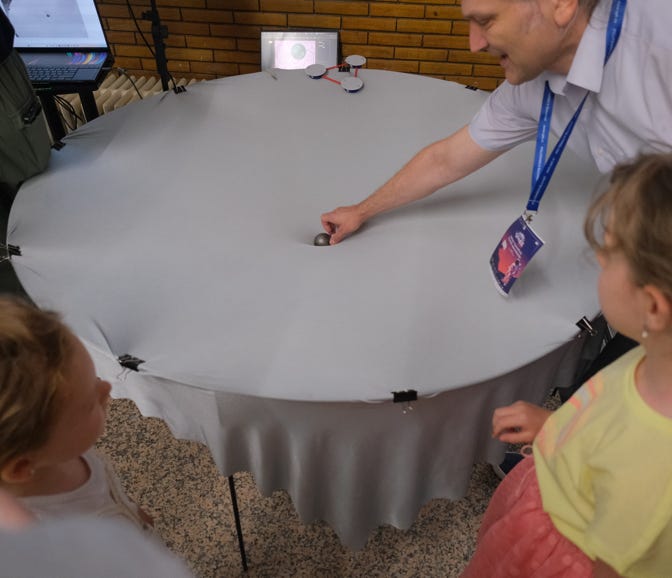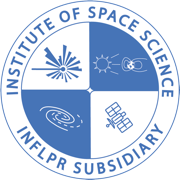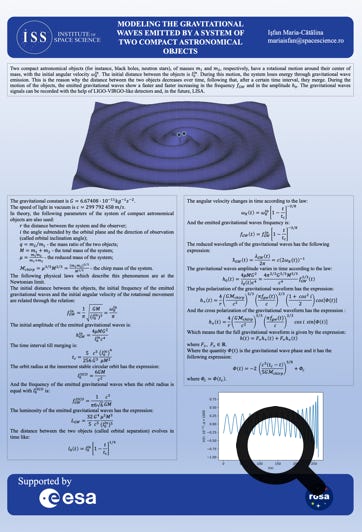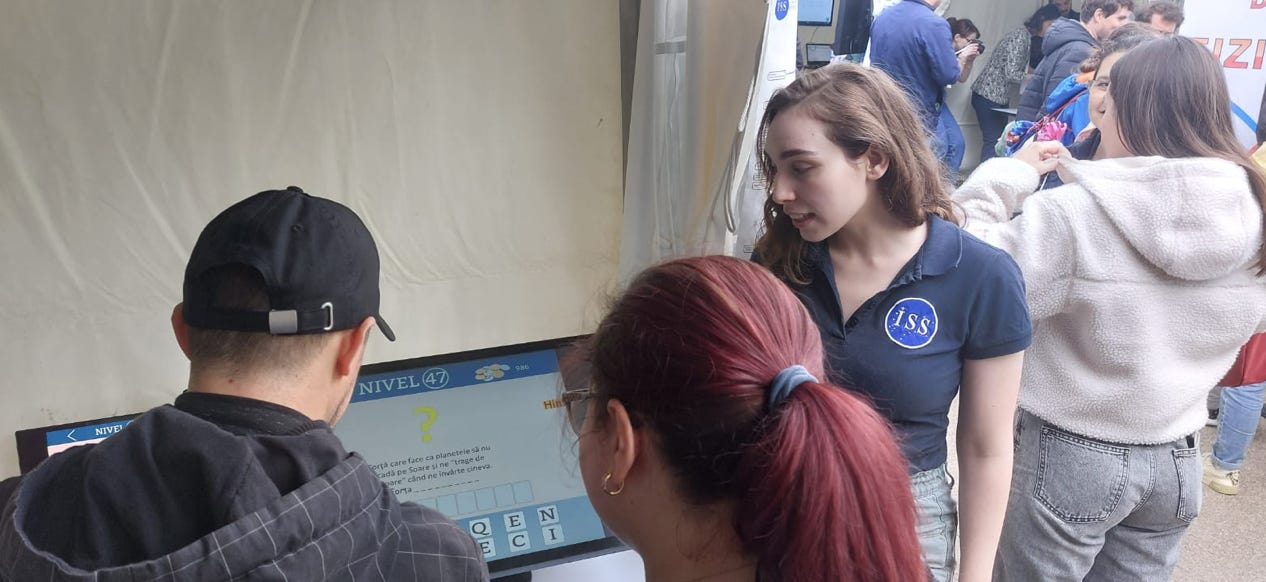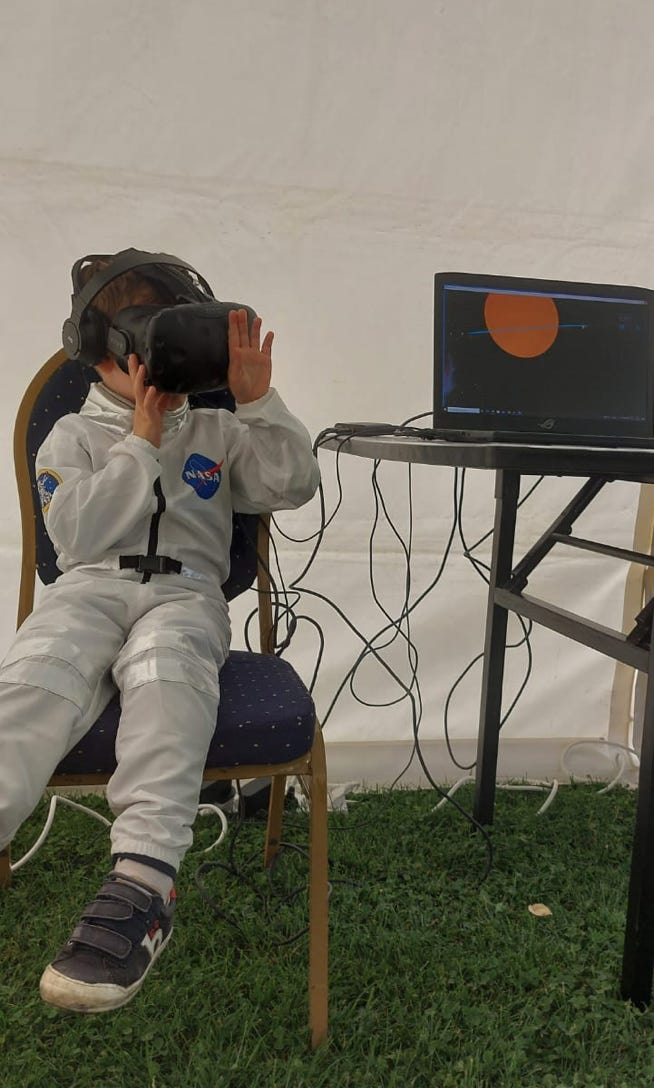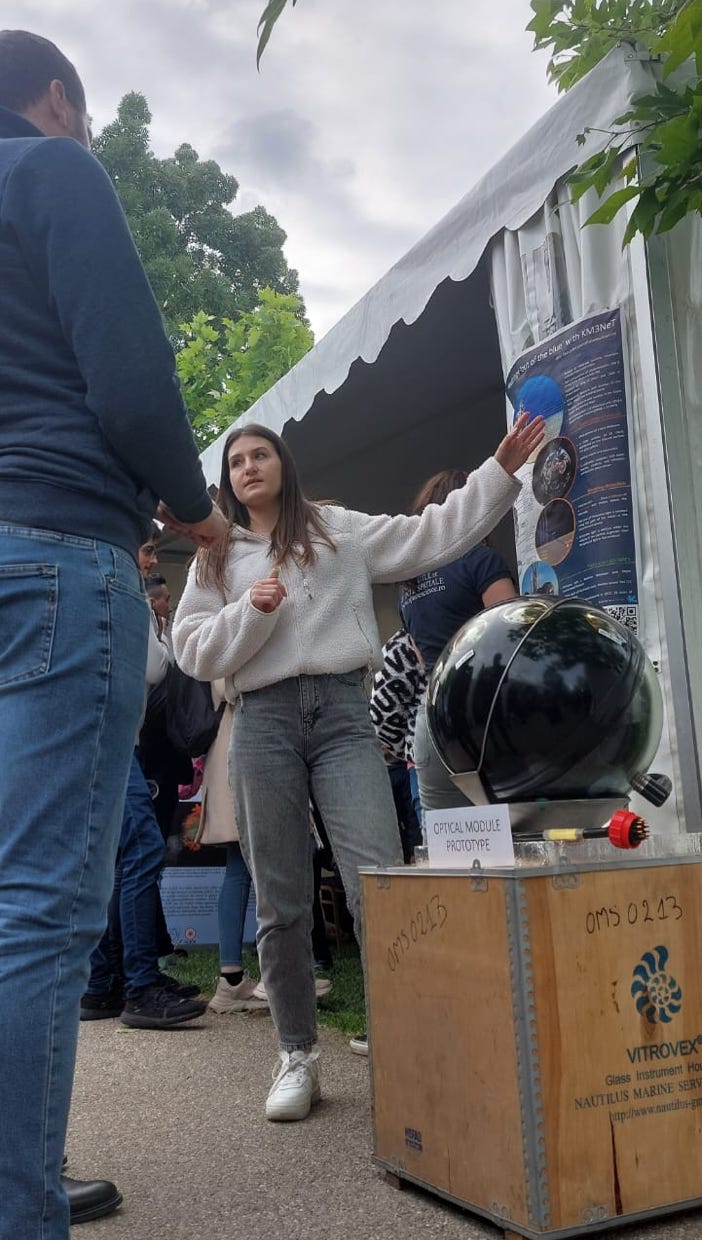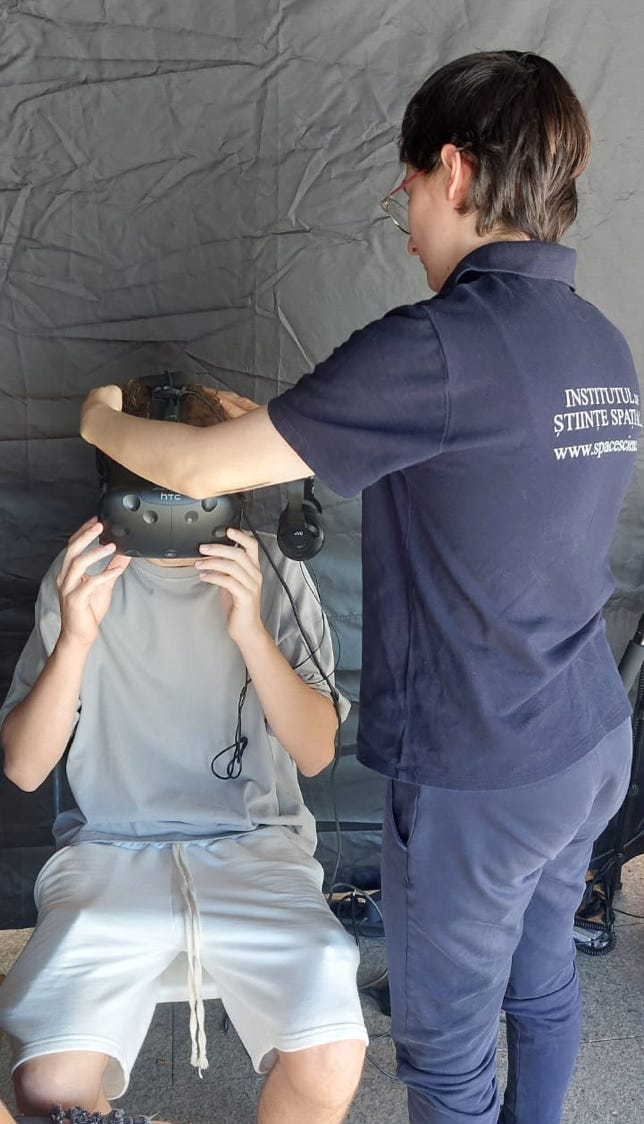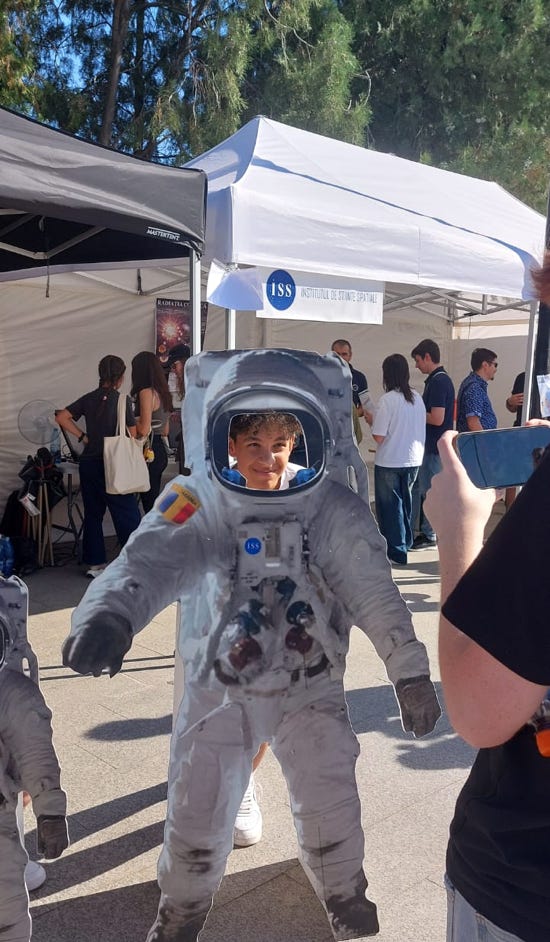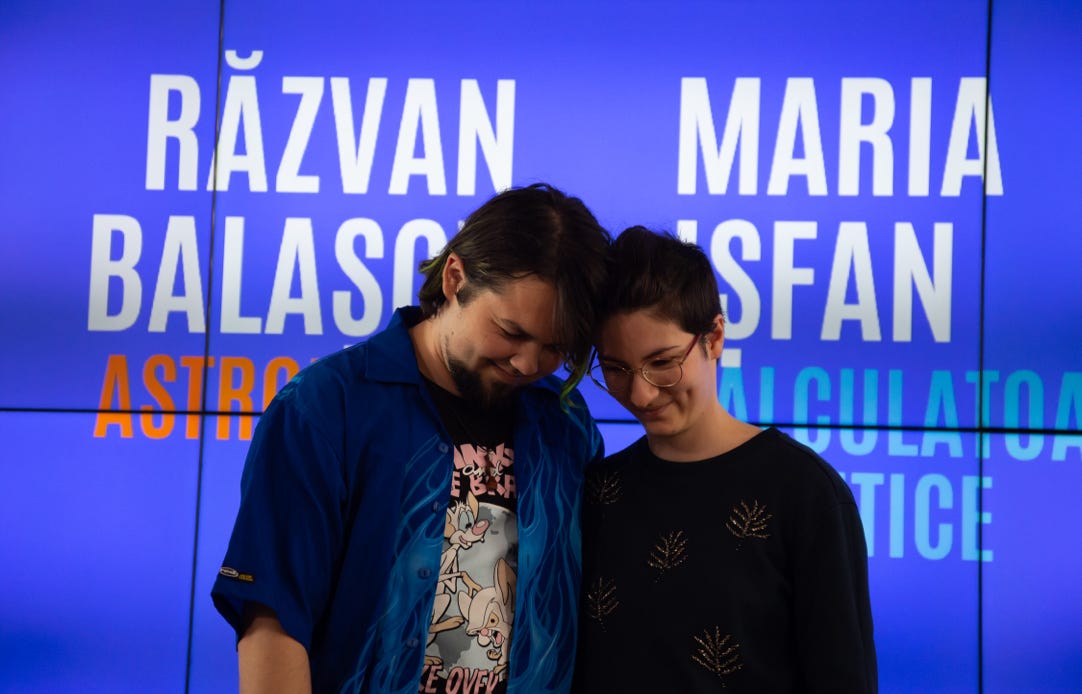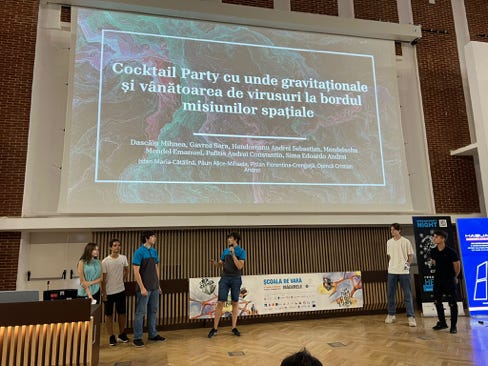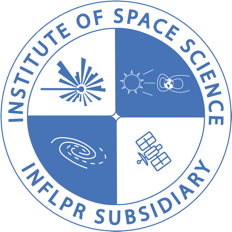
04.06.2024
This year, our group participated to Space Fest, an event dedicated to space activities, which gathers at the same place astronauts, scientists and representatives of the aeronautical industry. As this year was it’s second edition, we stepped up our game as well. More about the event can be found here,
We showed up with a gravitational wave simulator witch we used not only for showcasing how gravitational waves are formed, but also for describing the type of signals LISA will detect and how it will emit alerts to other observatories once a gravitational wave is found. We invited visitors of all ages to help us with our citizen science project: we challenged each of them to make their own waveform by throwing a lighter ball on a stretchy fabric which already had a heavy ball on it. The lighter ball would start insprialing around the heavier one until the two objects “merged”. The deformations of the fabric were recorded with a video camera and each movie clip was afterwards analysed and transposed in a waveform. We also connected the fabric to a computer so that an audible signal would be made when a wave would move close to the LISA mockup.
For those of you who created waveforms on our simulator, the waiting time is finally over! We processed all the signals you created and now it is finally time for you to discover what your distortion in space and time looks like!
When analysing the recorders, we used a python code which is publicly available here. The formalism we used for computing the waveform is presented in the poster below (click on the image to enlarge it):
The gravitational wave you can see here is the ideal model, but the universe always amazes us with all kind of more exotic waveforms. So do not worry if your waveform doesn’t look exactly like the one in the poster; it only means that you were a more eccentric source yourself ;) .
All you have to do now is to PUSH THE BUTTON! ;-)
